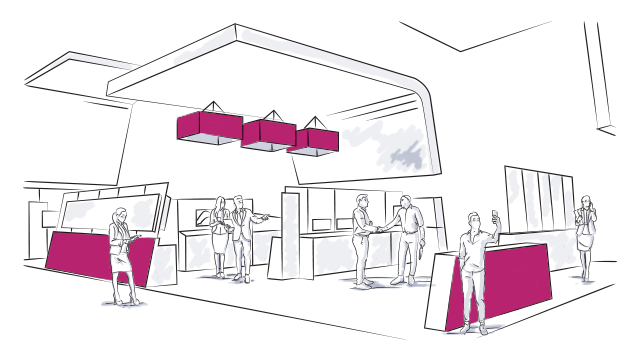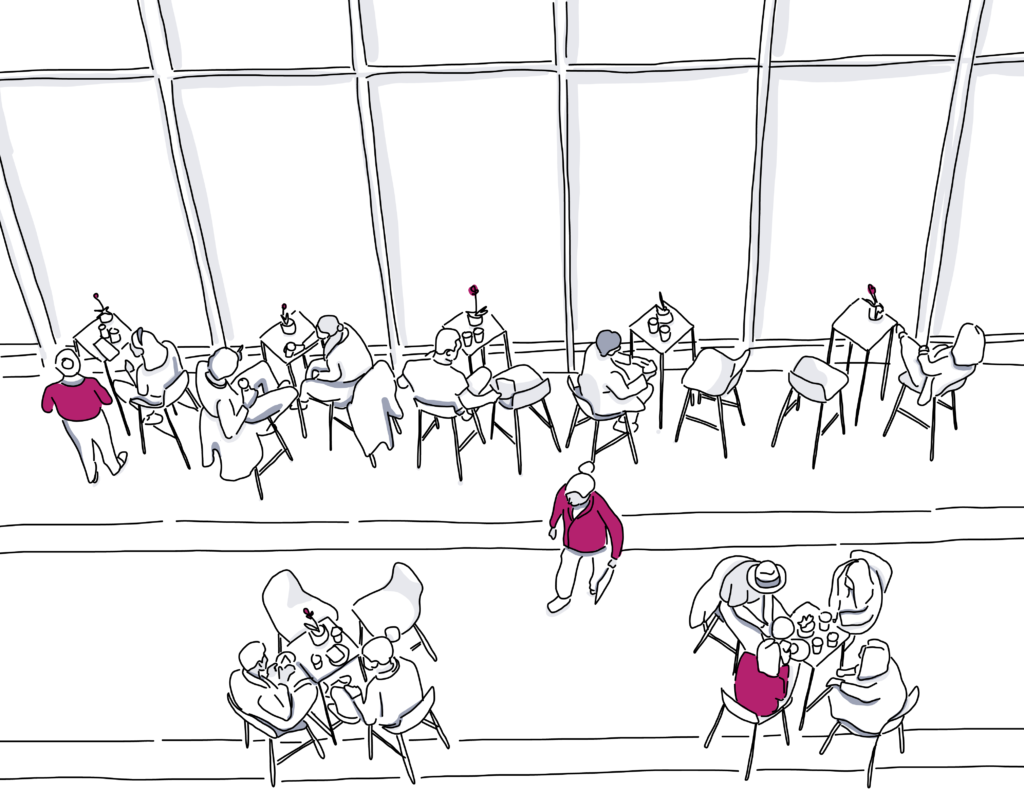
The Ultimate Site Inspection Checklist & Guide for Planners
Site inspections are more than just deciding whether or not you like the space. Successful site inspections ” the ones chock full of thoughtful questions and specific requests ” require a site inspection checklist to make the meeting as fruitful as possible.
With a proper site inspection checklist, you can thoroughly assess your event venue options to find the perfect fit for your audience and programs.
In this article, we’ll take a closer look at the items every site inspection checklist should include. We’ll also provide some amazing tips on how to make the most of your site inspection and what you can before, during, and after to ensure your success.
- What is a site inspection checklist?
- Why do event planners need a site inspection checklist?
- How to set up a site inspection
- Site inspection tips
- How to prepare for a site visit
- How to tell a good site inspection from a bad one
- The event planner’s site inspection checklist
- Important questions to ask at every site inspection
- Post site inspection wrap-up

What is a site inspection checklist?
A site inspection checklist is a tool event planners can use when visiting a location they’re considering for their next affair.
Examining a venue in person allows you to make note of the advantages and limitations of what’s available. Having a checklist makes it easy to keep track of all the little details. This way, you can make an educated decision either way. It also helps to have this info handy when you begin planning the event.
Why do event planners need a site inspection checklist?
A site inspection checklist helps event planners remember every little detail, no matter how small, when visiting a venue. It also helps to keep uniform records of site inspections as a future reference for both yourself and other team members.
Organized and extremely detailed records like these are a huge asset to event planners, regardless of whether they ultimately choose the venue this time around.
How to set up a site inspection
1. Timing
In an ideal world, you’d schedule your site inspection a year out from your event, with follow-up visits six months and one month out.
But the new norm seems to be a single visit just a few months away from the event. Not to worry though ” a site inspection checklist is a great tool for this situation since it helps to make sure you get all your ducks in a row in just one visit.
[Tweet “A site inspection checklist helps event planners remember every detail, no matter how small, when visiting a venue.”]
2. Scheduling
Event planners can typically schedule a site inspection through a sales representative at the property via phone or email. If it’s a hotel, they might also coordinate your complimentary room at this stage, although not all sites offer free rooms with every inspection.
3. Preparation
Conducting a site visit requires time management skills from both the planner and the venue itself. Make sure you’re prepared with your site visit checklist and preliminary research completed before you arrive. And if the visit feels rushed, make a note of that as well.

3 site inspection tips
- Ask smart questions. Ask questions that can’t be answered by any materials you already have. Also, remember to time your questions well. Some questions are better to ask during a tour, while others are more suited to ask during a break.
- Connect with at least three other event planners. Most often, a site visit will involve a group of people. Talk to as many event planners as you can and exchange contact info. After the inspection, you can connect and discuss your points of view about the venue and whether you’ll each move forward with it. They might even have some insider info to pass along.
- Have a checklist ready to go. As we’ve already mentioned, having a checklist with you is one of the most important steps to a successful site inspection. Use our checklist as a jumping-off point and be sure to include additional questions of your own.
How to prepare for a site visit
In addition to bringing a checklist like the one below, you’ll also need to do each of the following:
- Research, research, research. Look at specifics about the venue and the surrounding area. Review all resources (like virtual tours and downloadable floor plans) the venue provides ahead of time.
- Check in with your team. Go over your inspection checklist to see if they have any further recommendations or requests for you.
- Prepare business cards. You can give them to the venue’s sales rep and other tour members for networking purposes.
- Pack the right tools. You should always bring a camera (that has plenty of available storage) with at least one backup battery just in case. Also, remember to take your checklist and an organized list of your event needs and wants.
- Know what you need to see and what you don’t need to see. If the gym and pool areas aren’t necessary for your guests, make sure your contact at the venue knows that ahead of time. Be sure to have a must see list and kindly insist on visiting these areas during the visit.
Remember, the point of the site inspection is to leave with all the info you need to make a decision about the venue. So prepare accordingly. In addition to this list, you can also prepare by getting to know what separates a good inspection from a bad one.

How to tell a good site inspection from a bad one
Hotels and other event venues should do their best to impress event planners during site inspections. But there are some telltale signs that a venue is going truly above and beyond (or not).
Here are some signs that the site knows how to lead a quality site inspection:
- They are honest about hidden costs or availability. The sales rep should tell you about pricing options and fees upfront.
- They ask for event specifics before you arrive. Venue reps should already be familiar with your event needs and how they can accommodate them ” even if they have to get a little creative to do so.
- They provide full access to updated and accurate floor plans. To-scale floor plans are a must for event planners, and venues should go out of their way to make sure you have them so you can successfully plan table layouts.
- They don’t overpromise. If the venue isn’t able to fulfill things like food and beverage requests or equipment availability, they should be transparent about that. They should also provide all the possible alternatives they have on hand.
- They provide a custom, tailored experience for your visit. Their site inspection agenda, room set-ups, and walk-throughs should all mirror your event vision.
- They give you a single point of contact. Having one team member you can contact before, during, and after the site visit makes it easier to communicate with the venue.
Once you know these telltale signs, it’s time to prepare your own checklist.
The event planner’s site inspection checklist
Basic info
- Site inspection date
- Venue name
- Venue type
- Address
- Contact information
- Venue availability
Site specifics
- AAA rating
- Mobil rating
- Is there any upcoming construction planned? If so, when?
- Is the venue ADA compliant? If no, why not?
- Cancelation policy
- Attrition penalty
- Deposit amount and due date
- Neighborhood
- Building appearance
- Landscaping
Event logistics
- Nearest airport & distance from venue
- Nearest hotel (if venue is not a hotel) & distance from venue
- Parking fees
- Valet parking availability
- Freeway accessibility
- Directional signage
- Recreational services available
Food & beverage
- Availability and/or cost for each of the following:
- Continental breakfast
- Full breakfast
- Lunch
- Dinner
- Coffee (per gallon)
- Service charge
- Tax rate
- Guarantees needed by
- Overset guarantee by (%)
- Special packages
- Rate each of the following on a 5 point scale (1 being the worst, 5 being the best):
- Presentation
- Selection
- Pricing
- Creativity
- Service
Audio & visual
- Equipment provided
- Equipment quality
- Equipment availability
- Rental rates
- Labor rates
- Are union rules applicable? If so, what are the requirements?
Additional checklist items for meeting rooms
- Space availability
- Room rental charge
- Set-up charges
- Cleanliness
- Soundproofing
- Decor
- Ceiling height
- Lighting
- Temperature control
- Sound system
- Presentation equipment
- Number of elevators and proximity to space
- Nearest restroom proximity
- Nearest restroom cleanliness
- Catering availability
Additional checklist items for hotels
- Transportation
- Is complimentary transportation to/from the nearest hotel and/or airport available?
- Approximate taxi fare from the nearest hotel and/or airport
- Room overview
- Total number of sleeping rooms
- Total number of suites
- Rooms with king beds
- Rooms with queen beds
- Rooms with 2 double beds
- Rooms with twin beds
- % non-smoking rooms
- Rack rate for singles, doubles, and suites
- Group rate for singles, doubles, and suites
- Complimentary rooms available
- Plus over and above
- Room tax rate
- Additional tax per room per night, if applicable
- Room block by day (list each date and corresponding number of rooms)
- Cut off date
- Days out
- Are rates available after cut off date?
- Room details
- Proximity to meeting space
- Decor
- Cleanliness & appearance
- Square footage of each room type
- General amenities
- Bathroom conditions & cleanliness
- Is there a workspace or desk available inside rooms?
- Is there a sitting area available inside rooms?
- Number of restaurants in hotel
- Number of lounges in hotel
- Rate each of the following on a 5 point scale (1 being the worst, 5 being the best):
- Lobby
- Decor
- Seating
- Cleanliness
- Location
- Public restroom proximity
- Public restroom cleanliness
- Security
- Fire safety
- Handicap accessibility
- Lobby

5 important questions to ask at every site inspection
There are certain questions that, regardless of what type of venue you visit, are required for any event. Here are 5 questions that should give you greater insight into what the site can provide:
- How late can events run?
- What is the max capacity for each room?
- What permits are required for events?
- Are there designated areas for storage, green rooms, and/or back-of-house?
- What branding opportunities are available inside and outside of the venue?
Post site inspection wrap-up
If you want to make the most of your site visit, you must also think ahead to what you’ll need to do once it’s over. Make sure to address each of the following:
- Review your visit with key stakeholders by forwarding them a summary of your findings along with a meeting request.
- Hold an in-person meeting to go over details, share your site inspection checklist, and answer any questions your team might have.
- Make a decision on whether or not to move forward on this venue together.
You can find even more amazing tips for site inspections and event planning with our free event planning checklist.

Final thoughts
Checking out a new venue for the first time means managing a lot of moving parts with a site inspection checklist. It also means trusting your gut and picking a venue that aligns with your event goals. Knowledge is power for the modern event planner. So be sure to include any other questions you may have that are specific to your event or your location needs. Now that you’ve read the site visit guide, check out tips for how to negotiate event contracts.

